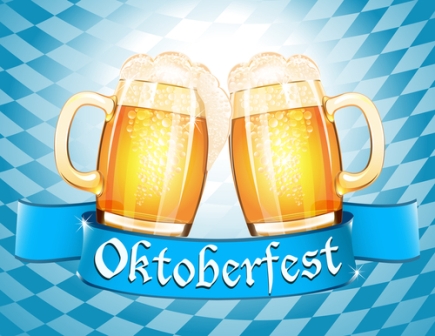
Yes, we know the real Oktoberfest takes place primarily in September, and, yes, this post has nothing to do with Germany or celebrations or even fun. But this time of year presented a good excuse to write about the intersection between trade secrets and beer. So here you have it: three moments when trade secret law and beer came together to produce this blog post.
Brewery Battle and the “Better Beer” Non-Compete: In September 2011, during the heart of the Oktoberfest celebration in Munich, a trade secret battle brewed up between Boston Beer (maker of Samuel Adams beer) and San Francisco-based Anchor Brewing Company when a sales manager left his job at Boston Beer to join Anchor. Boston Beer sued its former sales manager and Anchor for trade secret misappropriation, citing a non-disclosure clause that defined “trade secrets” as everything from brewing beer to selling it (for example, “techniques, recipes, formulas . . . business and marketing methods and manuals . . . .”). Boston Beer also alleged a violation of a non-compete clause restricting the employee from joining another company in the so-called “Better Beer” market within one year of leaving Boston Beer. Check out Boston Beer’s arguments here. The parties quickly settled and the case was dismissed just before New Year’s Eve. Cheers!
Beer Specifications and the Diluted Beer Class Action: In this ongoing suit, Anheuser-Busch has accused a former employee of using trade secret “beer specification” documents to generate a series of consumer class actions charging Anheuser-Busch with watering down and misrepresenting the alcohol content of its beer. According to Anheuser-Busch, one month before the employee resigned, the employee accessed a confidential beer specification document and then, minutes later, accessed a website called “www.topclassactions.com” to download, print, and save a class action complaint. Within a year, Anheuser-Busch was the subject of several class action lawsuits. Its trade secret misappropriation suit is still in its early stages, and the class actions, rather than being diluted in several different states, have been concentrated together in Ohio.
Trade Secrets, Beer, and Statistics: Trade secrets and beer are also responsible for the name of a well-known statistical hypothesis test called the Student’s t-test (well known to statisticians at least). According to legend (i.e., Wikipedia), in 1908 a chemist named William Sealy Gosset at the Guinness brewery in Dublin, Ireland developed a statistical test to monitor the quality of stout. When the test worked, he submitted it to a journal for publication. Guinness, however, prohibited its chemists from publishing their findings because of an earlier incident involving the publication of Guinness trade secrets. So Gosset had to publish his work under the pseudonym “Student,” and it became known as “Student’s t-test.” All because of beer and trade secrets.

